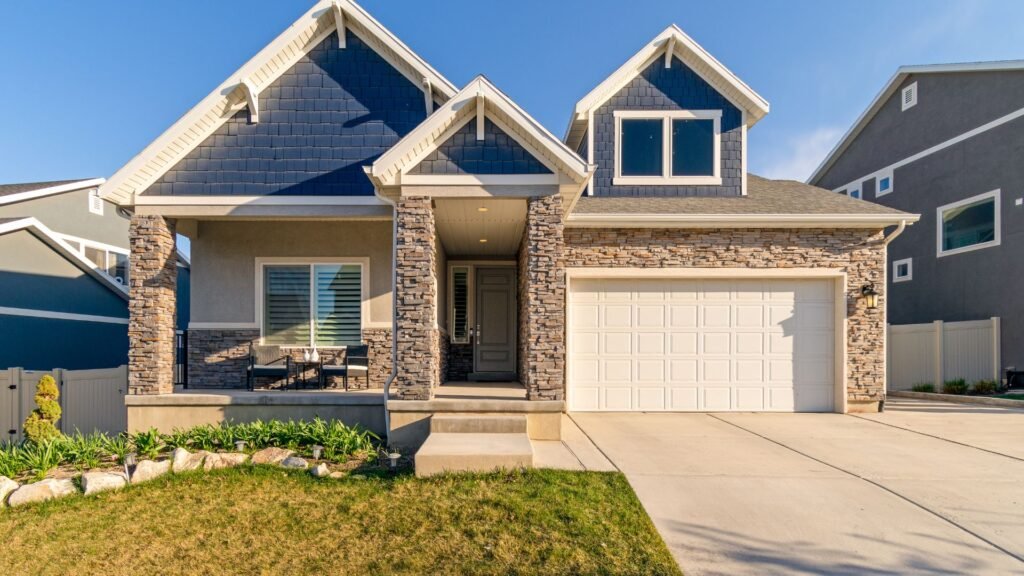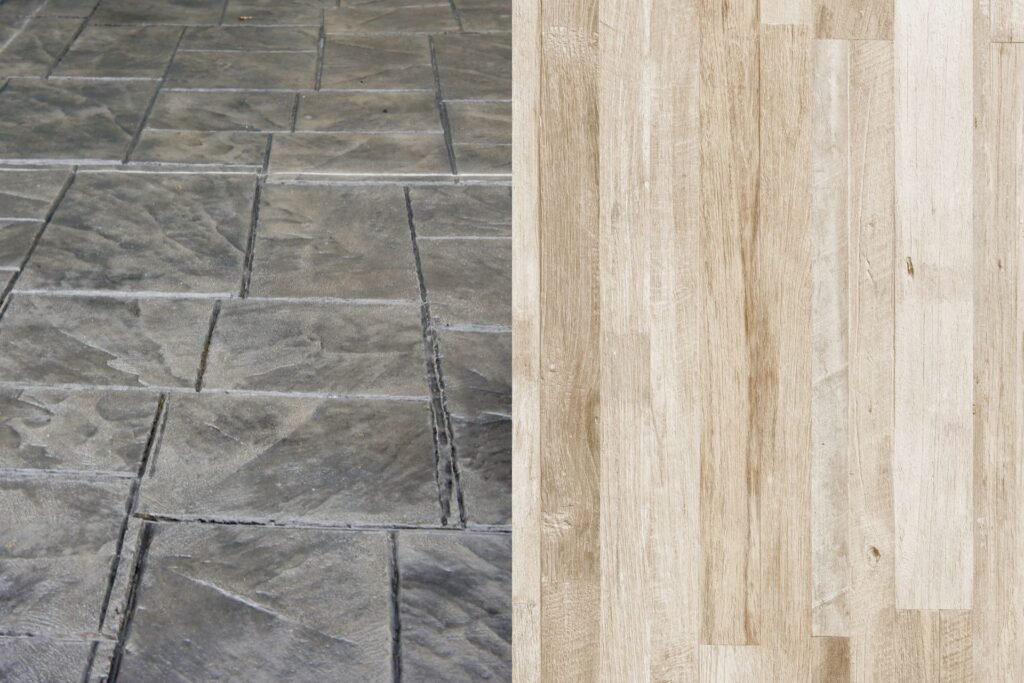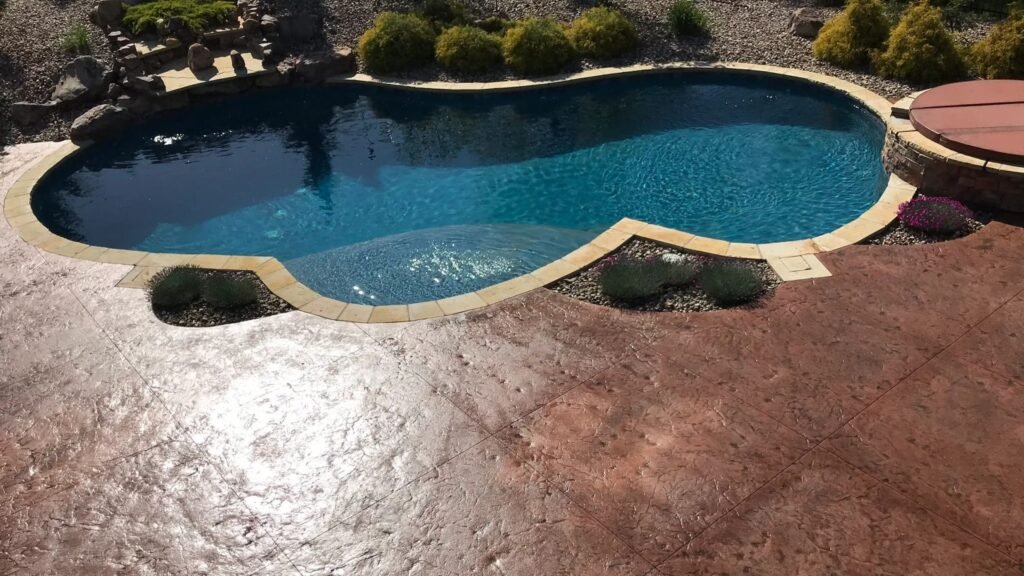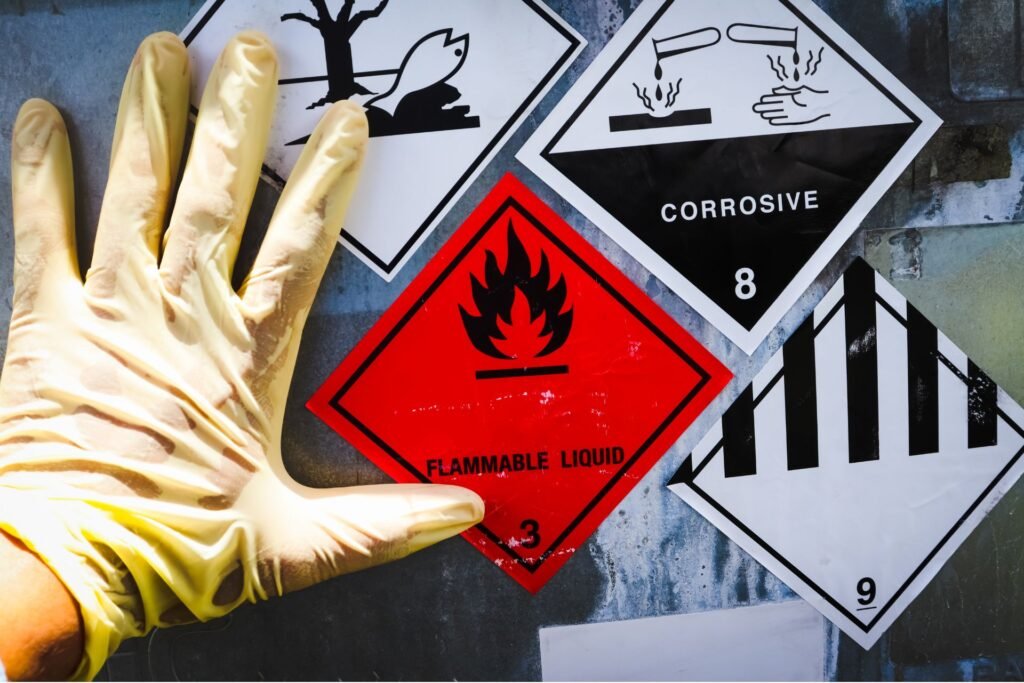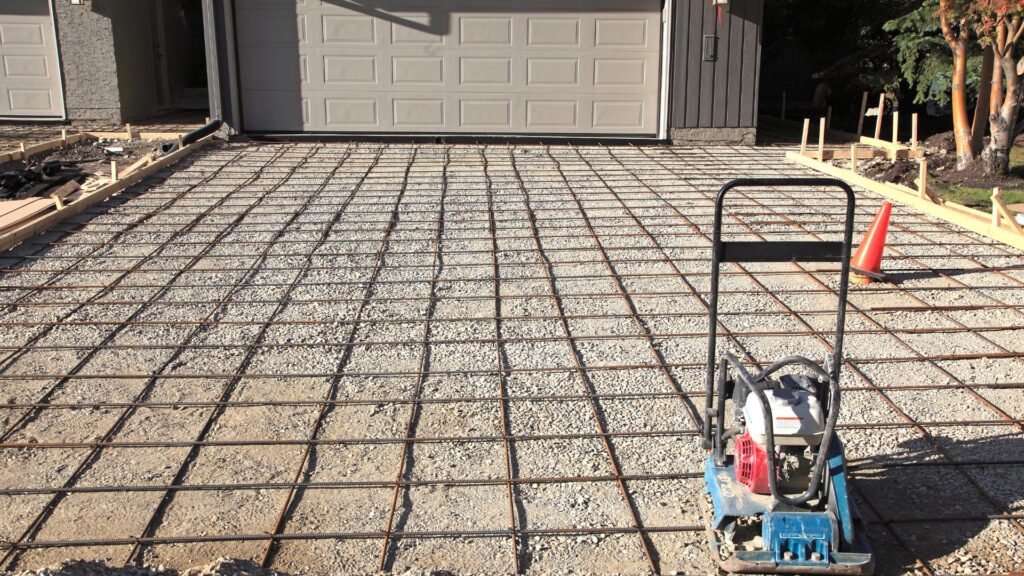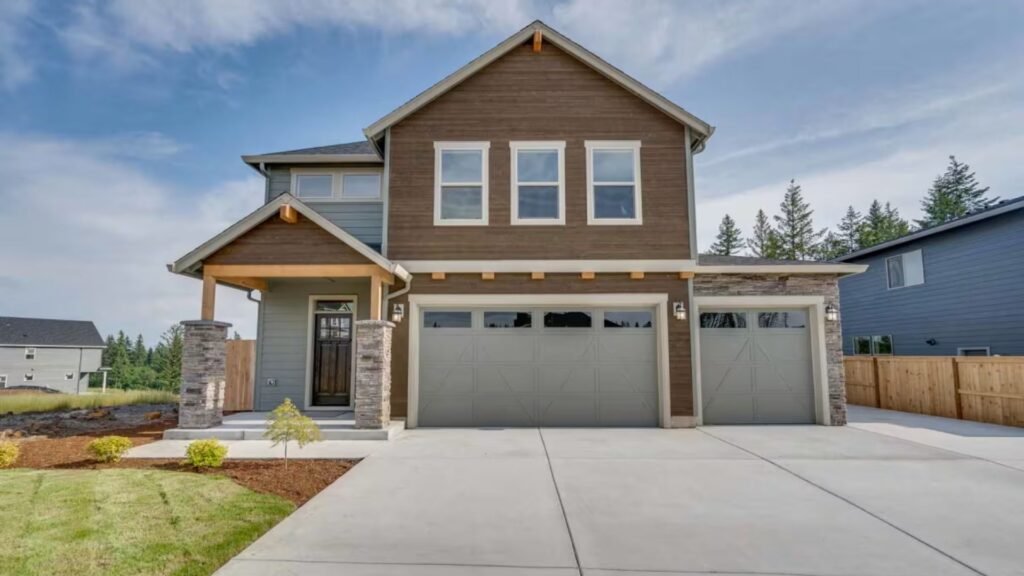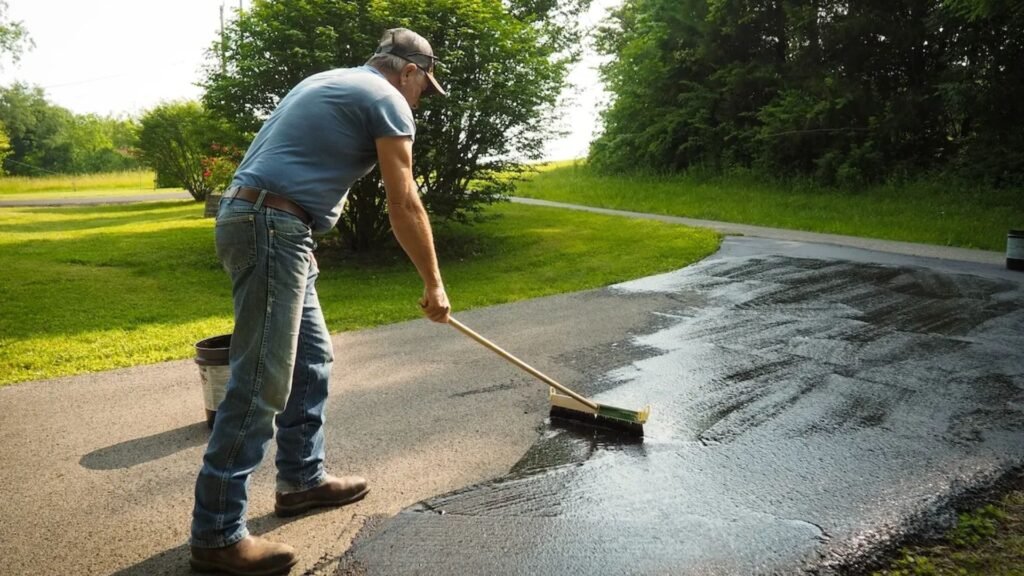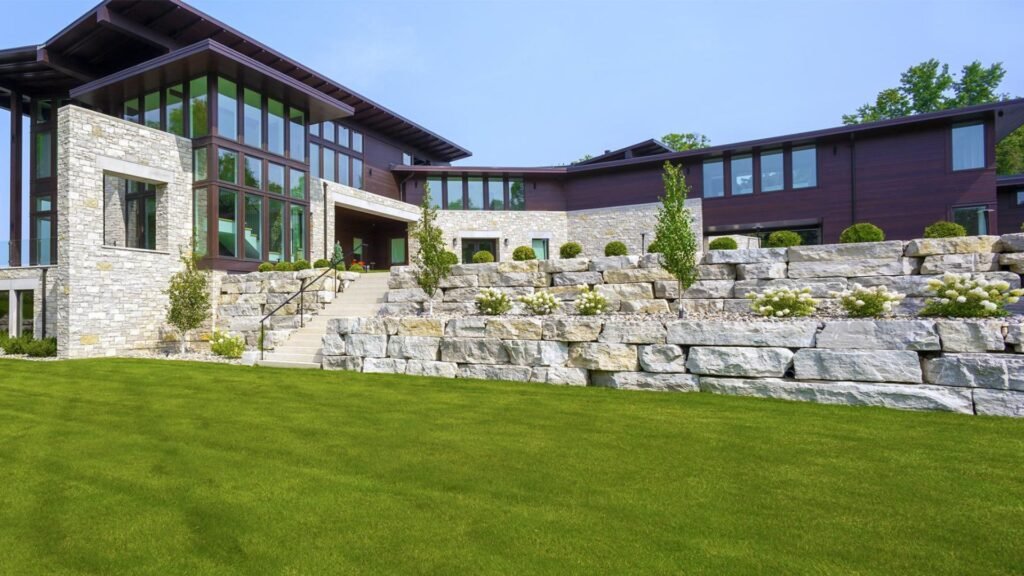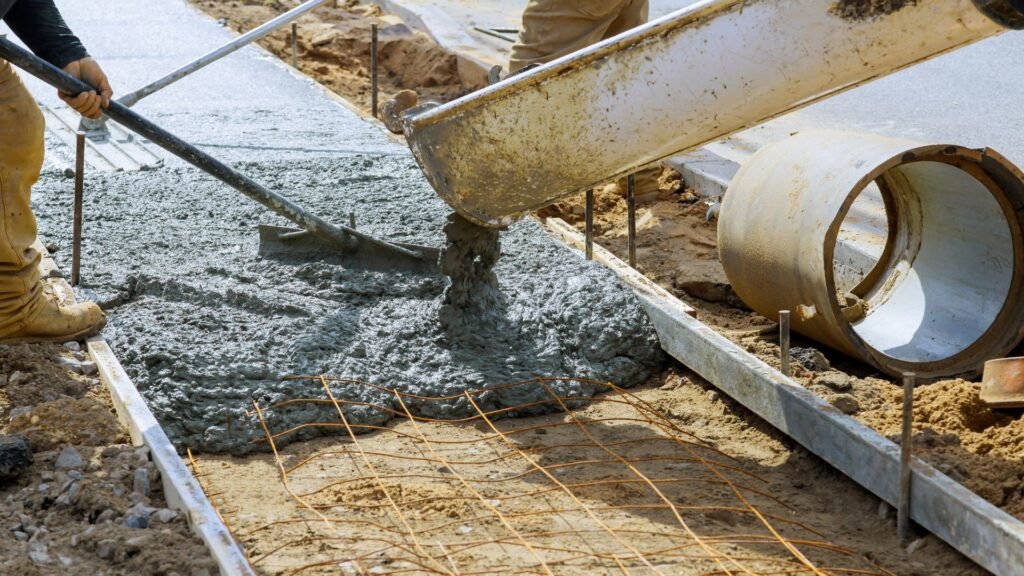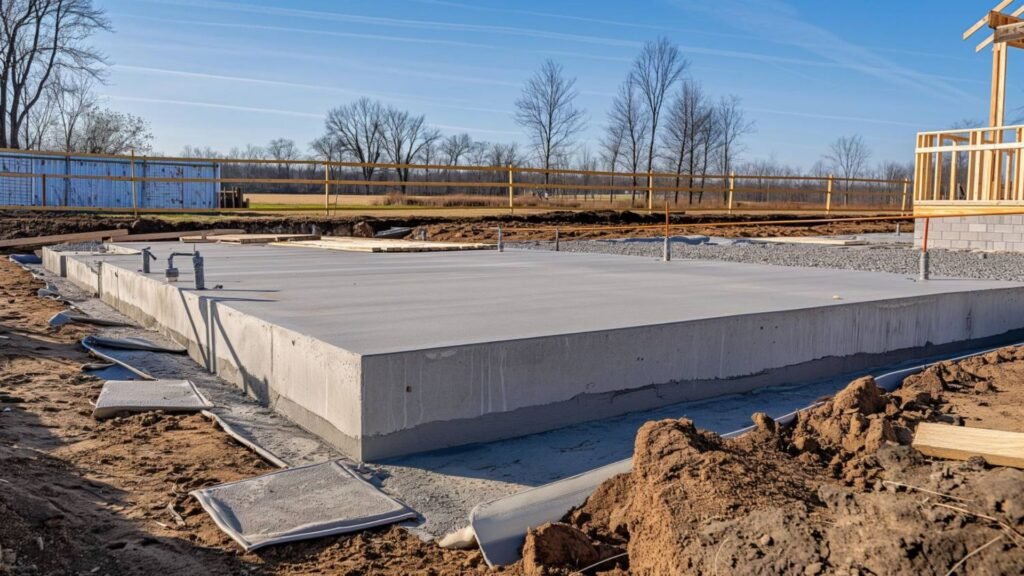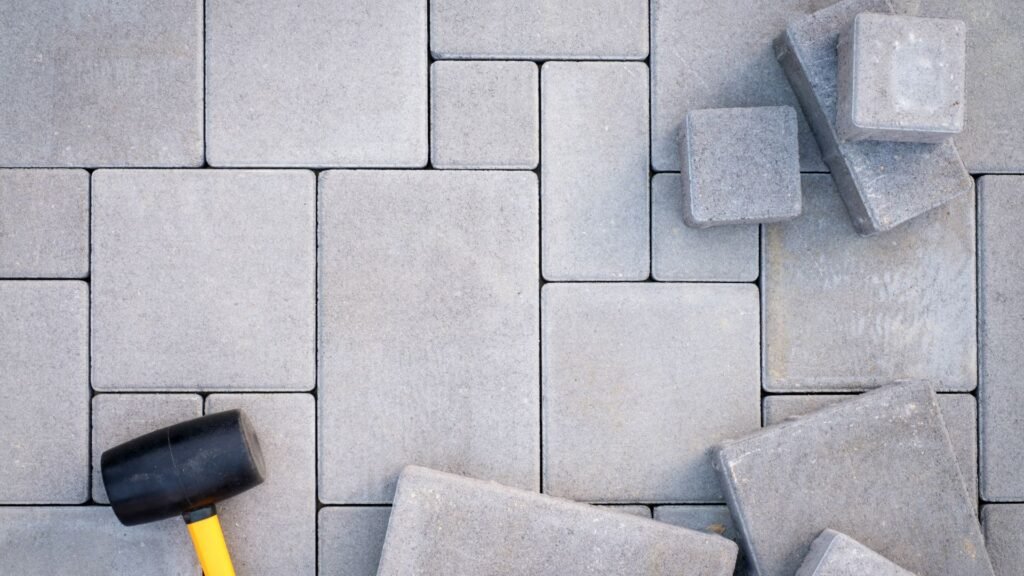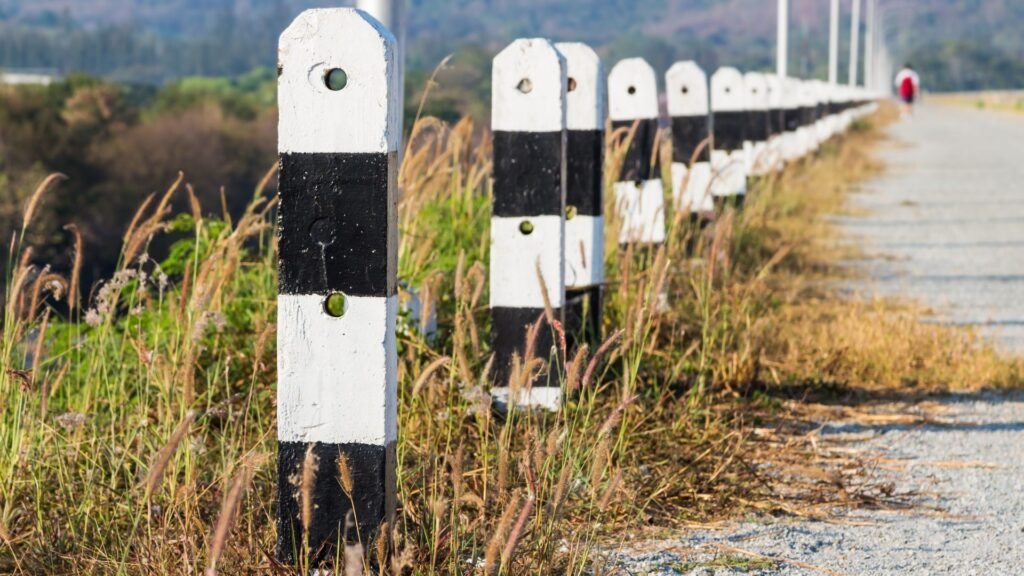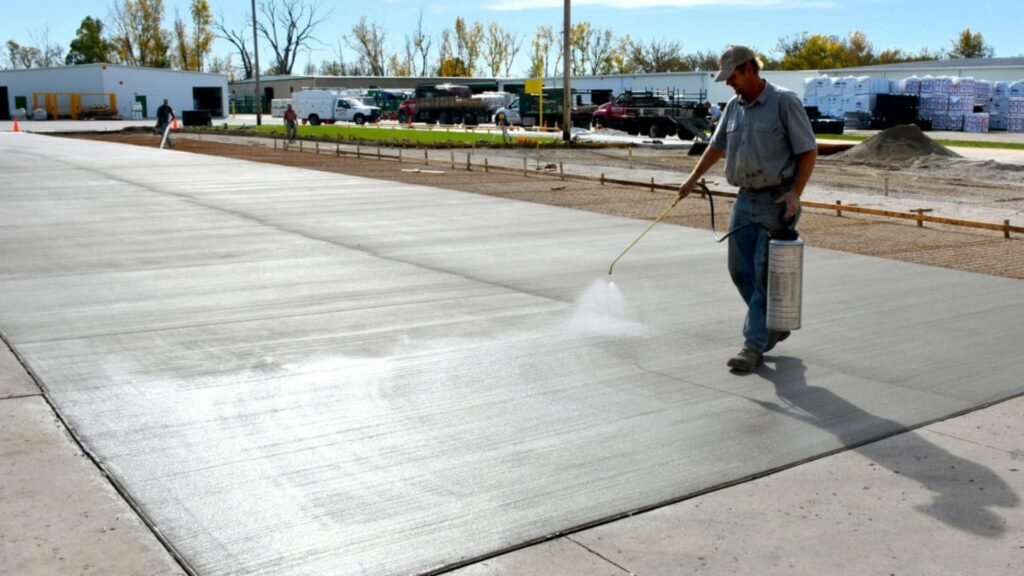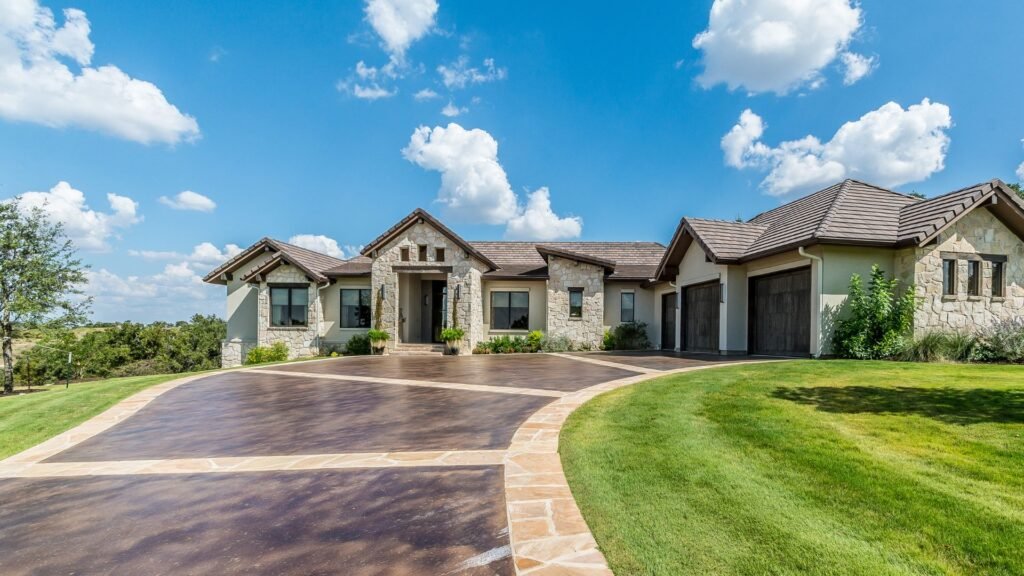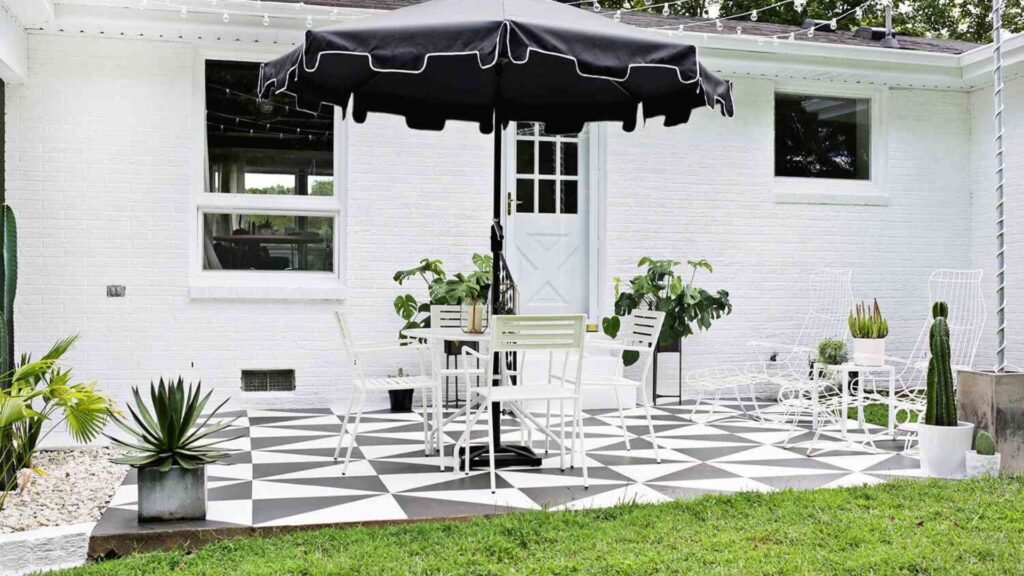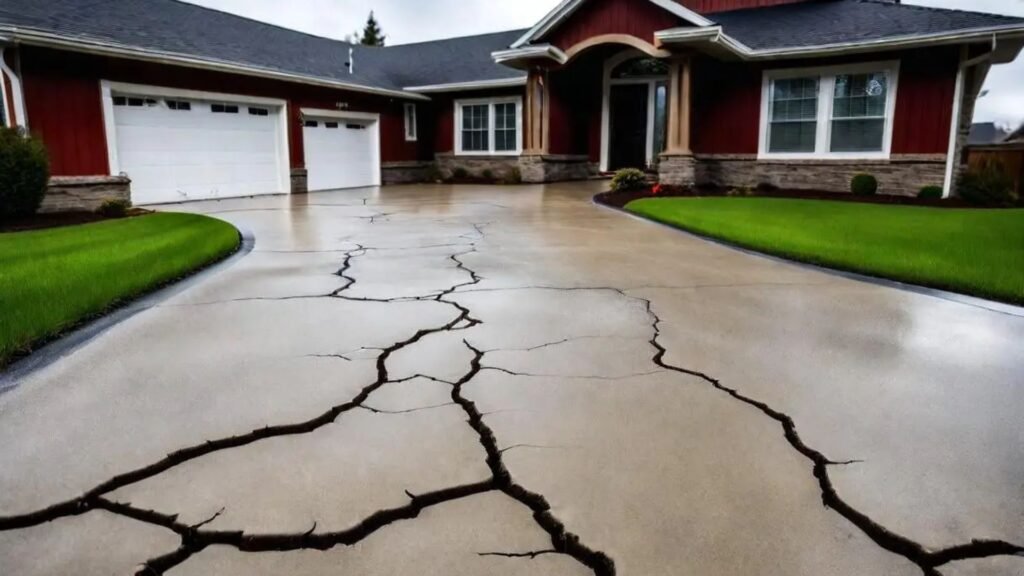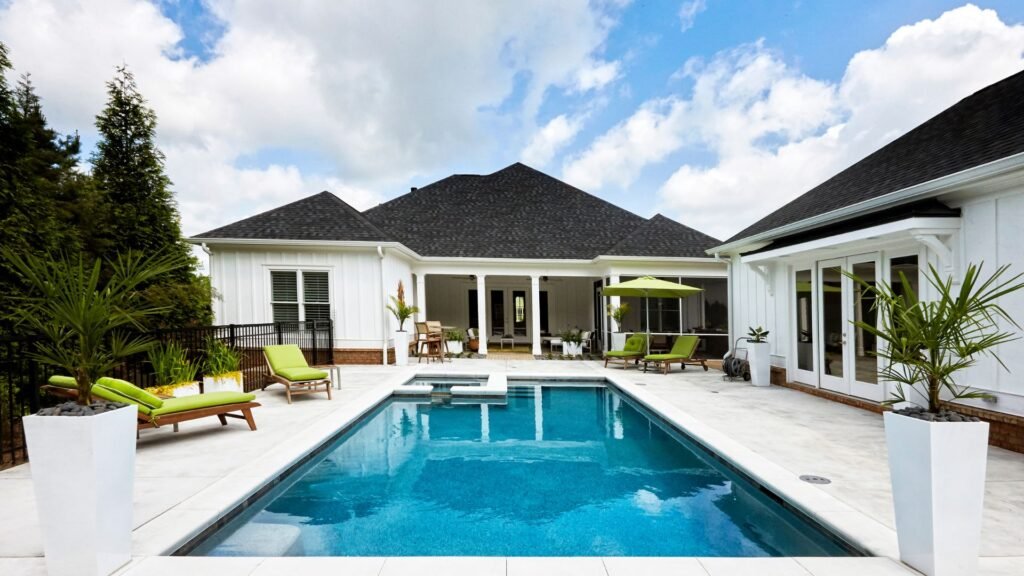Welcome to your comprehensive guide on understanding concrete driveway costs in New Zealand. Whether you’re planning to upgrade your home’s curb appeal or need a sturdy, durable surface for your vehicles, knowing what factors influence the price of a concrete driveway is essential. From material choices and labor rates to site preparation and design features, many variables affect the final cost of your project. In this guide, we’ll break down all the key components that impact pricing, offer practical budgeting tips, and compare concrete driveways with other popular options to help you make an informed decision. Let’s dive in and explore what you can expect when budgeting for a concrete driveway in NZ!
On average, the cost of a concrete driveway in New Zealand ranges between $65 to $150 per square meter, depending on factors such as driveway size, site preparation, materials used, and any additional finishes like colored or exposed aggregate concrete.
Table of Contents
What Is The Average Cost Of A Concrete Driveway In NZ?
General Cost Overview
The average cost of installing a concrete driveway in New Zealand typically falls between NZD 65 to $120 per square meter. This range, however, serves as a general estimate and can fluctuate depending on various factors such as the specific region, contractor rates, and the quality of materials used. Homeowners should consider this a ballpark figure, as additional customization, such as decorative finishes or textured surfaces, can significantly drive up the cost. Additionally, labor costs and the complexity of the installation process also play a critical role in determining the final price.
Typical Pricing Ranges Based on Driveway Size
To provide a clearer picture, let’s break down the cost estimates based on different driveway sizes:
Small Driveways (20-30 square meters)
A smaller driveway, ideal for single-vehicle spaces, would likely cost around NZD 1,300 to $3,600. This includes basic concrete materials and labor. If you are looking for a simple and functional space, this price range offers a good starting point.
Medium Driveways (40-70 square meters)
A medium-sized driveway, suitable for two to three cars or more extensive property layouts, can range between $2,600 and $8,400. The price here accommodates a more significant surface area and may allow for slight variations in design or finish.
Large Driveways (80-150 square meters)
For large properties or homes with additional parking space requirements, the price can reach anywhere from $5,200 to $18,000 or more, depending on the complexity of the design, excavation requirements, and additional finishing options.
These figures are estimates, and the actual cost may vary depending on the location of the project, access to the site, and the overall project scope.
Factors That Affect Price Variability
Several factors influence the total cost of a concrete driveway in New Zealand. Some of the key contributors include:
- Materials Used: The type and quality of concrete, whether you’re opting for standard concrete, colored, or exposed aggregate, can impact pricing.
- Labor Costs: Contractor rates, which can vary based on region and the complexity of the job, will also factor in.
- Customization and Design Features: If you’re considering a stamped or decorative finish, expect an increase in costs.
- Site Preparation: Driveway excavation, leveling, and potential drainage work all add to the overall expense.
In the following sections, we’ll dive deeper into these elements to provide a more comprehensive understanding of what goes into the final price of a concrete driveway.

Key Factors Affecting Concrete Driveway Costs In NZ
When planning a concrete driveway installation in New Zealand, understanding the key factors that affect overall costs is essential. From material choices to labor and site preparation, each element plays a critical role in determining the final price. In this guide, we will explore these crucial aspects in detail, helping you make informed decisions and ensuring a cost-effective and durable driveway solution.
Material Costs: Choosing Between Basic and Decorative Concrete
Basic Concrete vs. Decorative Options
Concrete driveways come in various types, each affecting the overall cost. Basic concrete is the most affordable option, offering a functional and durable surface. However, if you’re looking to enhance curb appeal or complement your home’s aesthetic, decorative concrete options like colored, stamped, or exposed aggregate are available. Colored concrete introduces pigments into the mix, offering a vibrant, uniform look, while stamped concrete can mimic more expensive materials like stone or brick. Exposed aggregate, a popular option in New Zealand, reveals the natural beauty of the stones within the concrete mix. These decorative finishes come at a higher cost but can significantly elevate your driveway’s visual appeal.
Strength and Thickness of Concrete
The strength and thickness of the concrete used also affect pricing. Driveways typically require a concrete slab of at least 100mm thickness, but if you need extra durability for heavy vehicles or high traffic, a thicker slab is necessary. Additionally, the concrete’s grade, measured in MPa (megapascals), determines its strength. For most residential driveways, 20 to 25 MPa is sufficient, but for more demanding conditions, a higher grade may be required, which will increase the cost. Higher-strength concrete is more durable, reducing the need for future repairs, but comes at a higher upfront investment.
Labor Costs in NZ: Understanding Regional Variations and Contractor Expertise
Regional Differences in Labor Costs
Labor costs in New Zealand vary significantly depending on the region. Urban areas like Auckland or Wellington tend to have higher labor rates compared to more rural regions. This discrepancy is largely driven by demand and the cost of living in these areas. In cities, contractors are often busier and may charge a premium, while rural areas may offer more competitive pricing. However, it’s important to balance cost with quality, as cheaper labor may not always result in the best finish.
Experienced Contractors vs. DIY
While it might be tempting to tackle a concrete driveway project yourself to save on labor costs, hiring experienced contractors can save money in the long run. Skilled contractors bring valuable expertise to the job, ensuring the concrete is laid correctly, leveled, and cured properly, which can prevent future issues like cracking or sinking. Although experienced contractors may charge more initially, the quality of their work often results in fewer repairs and a longer-lasting driveway, making it a more cost-effective solution over time.
Site Preparation and Excavation: Why It’s Crucial for a Stable Driveway
Importance of Site Prep
Proper site preparation is one of the most important aspects of installing a concrete driveway, yet it’s often overlooked. This involves clearing the area, grading it for proper drainage, and assessing the soil condition. If the soil is unstable, it may require additional compaction or even replacement with gravel or sand. Skipping these steps can lead to an uneven surface, water pooling, and ultimately, damage to the concrete over time. The more work that needs to go into site prep, the higher the overall cost, but it ensures the longevity and durability of your driveway.
Extra Costs for Complicated Sites
Not all sites are created equal. If your property is located on a steep incline, has poor soil quality, or requires significant excavation work, expect extra costs. These challenges require more time, specialized equipment, and sometimes even retaining walls or additional drainage solutions to ensure the driveway is stable and properly supported.
Driveway Size and Shape: The Direct Impact on Costs
Impact of Driveway Size
The size of your driveway directly affects both material and labor costs. Larger driveways require more concrete, increasing the cost of materials. Labor costs will also rise as a bigger area means more time is needed for pouring, leveling, and finishing the concrete. Calculating the total square meters of your driveway gives a clear indication of how size influences the budget.
Shape and Complexity
The complexity of your driveway design can also impact the final cost. Simple, rectangular or square driveways are quicker and easier to install, keeping labor costs lower. However, if you opt for custom shapes, such as curves or intricate patterns, the project becomes more labor-intensive. Specialized cuts, patterns, and designs require more time and expertise to execute, and as a result, will increase the overall cost. While unique shapes can add significant aesthetic value to your property, they should be considered carefully when budgeting.
Additional Features and Finishes: Enhancing Durability and Curb Appeal
Sealing and Finishing
Once your concrete driveway is installed, applying a sealant is highly recommended. Sealing helps protect the concrete from weather damage, stains, and wear, ultimately extending its lifespan. Although sealing adds to the cost, it’s a worthwhile investment, especially in regions of New Zealand that experience harsh weather conditions. Depending on the type of sealer used, you can also enhance the color and finish of decorative concrete, adding further to its visual appeal.
Adding Borders, Lighting, or Landscaping
To elevate your driveway’s appearance and add value to your property, you can incorporate additional features such as decorative borders, lighting, or even landscaping around the driveway. Borders made of brick, stone, or pavers can frame the driveway, while well-placed lighting adds safety and visual interest. While these extras can increase the overall cost, they contribute to a more polished and cohesive outdoor space, potentially increasing your home’s curb appeal and resale value.
The cost of installing a concrete driveway in New Zealand depends on several key factors, including material choices, labor rates, site preparation, and additional features. While basic concrete is a cost-effective option, decorative finishes, a larger or more complex design, and thorough site preparation will raise the price but also contribute to a more durable and aesthetically pleasing result. Hiring experienced contractors and considering the specific conditions of your site can help avoid unnecessary expenses in the future. Balancing cost with quality is key to ensuring your concrete driveway stands the test of time.

Comparing Concrete Driveway Costs To Alternative Materials
When choosing the right material for your driveway, cost is a crucial factor, but it’s equally important to consider durability, maintenance, and aesthetic appeal. In this section, we’ll take a close look at how concrete driveways compare to other popular materials like asphalt, gravel, and paving stones (pavers), weighing their pros and cons to help you make an informed decision.
Asphalt Driveways: A Cost-Effective Alternative
Asphalt is one of the most common alternatives to concrete driveways, primarily due to its lower initial cost. Asphalt driveways typically cost between $3 to $5 per square foot, while concrete driveways range from $5 to $10 per square foot or more, depending on the type of finish and reinforcement.
However, the cost savings of asphalt come with some trade-offs. While asphalt is cheaper upfront, it generally requires more frequent maintenance compared to concrete. Asphalt driveways need resealing every few years to protect them from cracks, potholes, and deterioration caused by weather conditions. On the other hand, concrete driveways last longer often up to 30 years or more with proper care whereas asphalt driveways have a lifespan of about 15 to 20 years.
Additionally, asphalt is more prone to softening in extreme heat and may be more susceptible to damage from heavy loads. Concrete, by contrast, remains strong in most conditions, though it can crack under extreme freezing and thawing cycles. Asphalt may be the better choice for those seeking a budget-friendly, short- to mid-term solution, while concrete can provide long-lasting durability with lower maintenance requirements over time.
Gravel Driveways: A Budget-Friendly Option with Trade-Offs
For homeowners seeking the most affordable option, gravel driveways are often the go-to choice. Gravel costs significantly less upfront, ranging from $1 to $3 per square foot, making it the cheapest driveway material available. However, it’s essential to consider the potential drawbacks that come with choosing gravel.
One of the major disadvantages of gravel driveways is the frequent maintenance they require. Unlike asphalt or concrete, gravel is not a fixed surface, meaning it can be easily displaced by vehicles, weather, and erosion. This results in the need for regular regrading, replenishing gravel, and occasionally addressing issues like ruts, potholes, and weed growth.
Gravel driveways are also less visually appealing than concrete or asphalt and may not offer the same level of functionality in terms of load-bearing capacity. Heavy vehicles can create depressions or push the gravel around, leading to an uneven surface. Additionally, gravel driveways are not ideal for areas with heavy snowfall, as clearing snow can be challenging without disturbing the gravel bed.
While gravel is a highly economical choice for driveways, it is best suited for rural or low-traffic areas where frequent maintenance and aesthetic concerns are less of an issue. For homeowners who prioritize low upfront costs and are prepared for ongoing upkeep, gravel can be a viable option.
Paving Stones (Pavers): High-End Durability and Design Flexibility
Paving stones, also known as pavers, offer an attractive and durable alternative to both concrete and asphalt, though they come with a higher price tag. Paver driveways can cost anywhere from $10 to $30 per square foot, making them the most expensive option compared to concrete, asphalt, or gravel.
However, the higher cost of pavers is often justified by their numerous advantages. Paving stones are known for their exceptional durability, and individual pavers can be replaced if damaged, unlike asphalt or concrete, where repairs are more complex and expensive. Pavers are also resistant to cracking, which is a common issue with concrete, especially in areas that experience frequent freeze-thaw cycles.
Another major selling point of pavers is their design versatility. Pavers come in a wide variety of shapes, sizes, colors, and patterns, allowing homeowners to create custom, visually stunning driveways that complement their home’s architecture and landscaping. The aesthetic appeal of pavers can significantly boost curb appeal, potentially increasing property value.
While the initial cost of installing a paver driveway is high, the low maintenance and long lifespan make them a worthwhile investment for those seeking both functionality and style. Homeowners who are willing to invest more upfront for the benefits of aesthetic flexibility and long-term durability may find pavers to be the ideal choice.
When comparing concrete driveways to alternative materials like asphalt, gravel, and paving stones, it’s clear that each option has its own set of benefits and drawbacks. Asphalt offers a cheaper, short-term solution but requires more maintenance. Gravel is the most affordable but comes with higher long-term upkeep. Paving stones, while more expensive initially, provide unmatched durability and design possibilities.
Ultimately, the choice depends on your budget, aesthetic preferences, and long-term maintenance considerations. Concrete driveways strike a balance between affordability, durability, and relatively low maintenance, making them a popular and practical choice for many homeowners. However, if you have specific needs, such as a budget constraint or design preferences, alternative materials like asphalt, gravel, or pavers might suit your driveway better.

Tips For Reducing Concrete Driveway Costs Without Compromising Quality
When planning a concrete driveway project, it’s essential to balance cost with durability and aesthetics. By applying smart strategies, you can reduce costs without sacrificing the quality of your driveway. Below are some practical tips to help you achieve that goal.
Get Multiple Quotes
One of the most effective ways to ensure you’re getting the best deal is to get multiple quotes from local contractors. Not only does this allow you to compare prices, but it also gives you a sense of the market rate in your area. By gathering at least three to five quotes, you can identify any outliers whether a contractor is charging too much or suspiciously low, which might be a red flag. Furthermore, don’t just focus on price; assess the reputation of the contractor, reviews, and their experience with concrete driveways. Sometimes, paying a little more for a skilled contractor can save you from costly repairs down the line.
Opt for Basic Concrete with Strategic Upgrades
If you’re working with a limited budget, a clever approach is to opt for basic concrete for the main surface while incorporating small but impactful upgrades. Basic concrete is typically less expensive, but that doesn’t mean your driveway has to look plain. Consider adding strategic aesthetic features like colored borders, stamped edges, or decorative joints. These enhancements can make your driveway stand out without significantly increasing costs. This tactic allows you to create a visually appealing driveway while keeping most of the surface simple and affordable.
Consider Timing
Another key factor that can influence the overall cost of your concrete driveway is timing. Like many other industries, construction has peak seasons typically in the warmer months when demand for outdoor projects is high. By scheduling your driveway project during off-peak periods, such as late fall or early spring, you may be able to negotiate lower labor costs. Contractors are often more willing to offer discounts during slower times to keep their crews busy, so being flexible with your project timeline could result in significant savings. Just ensure the weather conditions are still suitable for concrete work to avoid compromising quality.
Maintain Your Driveway to Extend Its Lifespan
One of the best ways to save money on your driveway in the long term is by investing in regular maintenance. Proper care can extend the life of your concrete, helping you avoid costly repairs or the need for a premature replacement. Start by sealing the surface every two to three years to protect it from moisture, chemicals, and freeze-thaw cycles, which can lead to cracks and deterioration. Regularly clean your driveway to remove debris, stains, and corrosive substances like oil or salt. Promptly addressing minor issues, like small cracks or chips, can prevent them from worsening over time. A well-maintained driveway can last for decades, making your initial investment more worthwhile.
Reducing the cost of a concrete driveway doesn’t have to mean cutting corners on quality. By getting multiple quotes, opting for basic concrete with selective upgrades, timing your project strategically, and maintaining your driveway, you can enjoy a durable, attractive surface that fits your budget. These tips will help you maximize your investment while ensuring your driveway remains functional and aesthetically pleasing for years to come.

Budgeting For Your Concrete Driveway In NZ
Planning a concrete driveway in New Zealand involves more than just picking the right material and contractor; it also requires smart budgeting. By understanding all potential costs, both upfront and ongoing, you can ensure your project stays within budget and avoid unwelcome surprises down the line. In this section, we’ll break down how to effectively budget for your concrete driveway, including key factors like materials, labor, and maintenance. We’ll also explore financing options to help you make your project more affordable.
How to Set a Realistic Budget
The first step in any successful driveway project is setting a realistic budget. This involves accounting for both the material and labor costs, as well as a buffer for any unexpected expenses. Here’s a breakdown of what you should consider:
- Material Costs: Concrete itself can vary in price depending on the type (e.g., plain, colored, exposed aggregate). Be sure to research the cost per square meter for your preferred finish and multiply it by the total area of your driveway.
- Labor Costs: Labour can often represent a significant portion of your driveway budget. It includes the cost of site preparation, concrete pouring, and finishing. Skilled professionals are essential for achieving a high-quality result, so it’s worth investing in experienced contractors, even if their rates are slightly higher.
- Contingency for Unexpected Costs: Always include a buffer typically around 10-15% to cover unforeseen issues. Whether it’s an unexpected change in material prices, additional site preparation, or weather-related delays, having this cushion can save you from financial stress mid-project.
Creating a detailed estimate using these factors will give you a clear picture of what to expect. This will allow you to adjust your choices or timeline if needed to keep the project within your financial means.
Accounting for Ongoing Maintenance Costs
Once your driveway is installed, the costs don’t end there. Concrete driveways are durable, but they still require maintenance over time to keep them looking good and functioning properly. Failing to account for these ongoing expenses can lead to larger, more costly repairs down the line. Here are some of the key maintenance costs you should budget for:
- Sealing: To protect your concrete driveway from weather damage, stains, and general wear, it’s recommended to seal it every 2-3 years. Sealing costs can vary, but it’s a small price to pay for maintaining the appearance and durability of your driveway.
- Cleaning: Regular cleaning, especially after periods of heavy rain or when spills occur, helps to maintain the surface. While some homeowners opt for professional cleaning services, you can also do this yourself with the right tools and products.
- Minor Repairs: Over time, small cracks or surface imperfections may appear. It’s cheaper to address these minor issues promptly rather than waiting for larger problems to develop. Factor in the occasional cost of patching materials or professional touch-ups as part of your long-term budget.
By planning for these maintenance tasks ahead of time, you can extend the life of your driveway and avoid larger repair bills in the future.
Financing Options and Payment Plans
Concrete driveway projects can be a significant investment, and not everyone has the funds available upfront. Fortunately, several financing options can make this expense more manageable. Many contractors in New Zealand offer flexible payment options to help homeowners finance their driveway projects without breaking the bank.
- Contractor Payment Plans: Some contractors offer staged payment options where the cost is broken down into manageable payments throughout the project. This can help reduce the financial burden of paying for the entire driveway upfront.
- Home Improvement Loans: Another option to consider is a home improvement loan. These are typically available from banks or financial institutions and can provide the necessary funds to cover both labor and material costs. Since these loans are often secured against your home, they may offer lower interest rates than other types of personal loans.
- Credit Cards: For smaller projects or those who only need a bit of extra funding, credit cards can be used. However, this should be approached with caution due to potentially high interest rates. Be sure to pay off the balance quickly to avoid extra costs.
Discussing payment options with your contractor early in the process can help you choose a plan that works for your financial situation. Whether you opt for a loan, a staged payment plan, or pay in full, having a clear payment strategy ensures the project stays on track financially.
By considering all aspects of budgeting, from upfront costs to financing options and long-term maintenance, you’ll be better prepared to make informed decisions and avoid financial pitfalls while creating the perfect concrete driveway for your home in NZ.

Choosing The Right Contractor In NZ
When it comes to any construction or renovation project, selecting the right contractor is crucial to achieving successful outcomes. Whether you’re building a new home, remodeling, or making essential repairs, choosing a qualified and experienced contractor can make all the difference. This section will guide you through why hiring a professional contractor is essential, what questions to ask, and why checking licenses and certifications is non-negotiable in New Zealand.
Importance of Hiring a Qualified Contractor
One of the most important decisions you’ll make when starting a construction or renovation project is choosing the right contractor. A skilled and qualified contractor not only ensures the work is done to a high standard but also helps you manage costs effectively. Working with someone who has the right expertise can prevent costly mistakes, reduce waste, and keep the project on schedule. A professional contractor will bring experience and knowledge to the table, offering solutions that you may not have considered, all while adhering to New Zealand’s building codes and standards.
Hiring an underqualified or inexperienced contractor may seem cheaper initially, but it often leads to poor craftsmanship, project delays, and unexpected costs down the line. By investing in a contractor with a solid track record, you save money in the long term through better quality work, fewer repairs, and improved project efficiency.
Questions to Ask Your Contractor
Before you commit to hiring a contractor, it’s important to ask the right questions to ensure they are the right fit for your project. Here are some key questions you should consider:
1. How long have you been in the industry?
Experience matters. A contractor with years of experience is more likely to have encountered a wide variety of projects and challenges, giving them the expertise to handle unforeseen issues efficiently.
2. Can you provide references?
Speaking to previous clients gives you insight into the contractor’s reliability, work ethic, and quality of work. Be wary of contractors who hesitate to share references.
3. What kind of warranties do you offer?
Reputable contractors usually stand by their work and offer warranties for labor and materials. This gives you peace of mind that they are confident in the quality of their service.
4. Do you have experience with projects similar to mine?
Each construction or renovation job is different. Whether you’re building a new home, remodeling a kitchen, or undertaking a landscaping project, it’s beneficial to hire a contractor who has specific experience in the type of work you need.
5. What is your estimated timeline and budget?
Transparency in timelines and costs helps prevent future misunderstandings. A good contractor will provide a realistic estimate and stick to it as closely as possible.
6. What is your approach to communication?
Clear communication is key to a successful project. Ask how they will keep you updated throughout the project and how accessible they will be for questions or concerns.
Checking for Licenses and Certifications
In New Zealand, ensuring your contractor is licensed and certified is essential. This not only verifies their qualifications but also protects them from potential legal and financial risks. Licensed contractors have undergone the necessary training and assessments, ensuring they are capable of carrying out work that meets New Zealand’s building standards.
When hiring a contractor, always ask to see their License Building Practitioner (LBP) certification. This is especially important for restricted building work, which includes structural work and weather tightness issues. An LBP must be certified to carry out such tasks.
Furthermore, you should verify any additional certifications that might be relevant to your project, such as membership in industry associations like the Certified Builders Association or Master Builders. These memberships indicate a commitment to ongoing education and adherence to best practices.
Failing to check licenses and certifications can lead to subpar work, potential legal complications, and costly repairs. It also means that any work done by an unlicensed contractor may not be covered under your insurance or applicable warranties.
Choosing the right contractor in New Zealand is a critical step in ensuring your project is completed efficiently, on time, and to the highest standards. By hiring a qualified professional, asking the right questions, and verifying their credentials, you protect yourself from potential headaches and unnecessary costs. Always do your due diligence to find a contractor who is experienced, transparent, and legally certified to guarantee the best results for your project.

FAQs: About The Concrete Driveway Cost NZ
How much does a concrete driveway cost per square meter in New Zealand?
On average, a concrete driveway in NZ costs between $65 to $150 per square meter. The exact price depends on factors like the type of concrete, site preparation, and any additional customizations or finishes.
What factors influence the cost of a concrete driveway?
Several factors impact the cost, including the size and shape of the driveway, the type of concrete (standard, colored, exposed aggregate), site preparation, labor costs, and any additional features like sealing or decorative elements.
Is a concrete driveway more expensive than other materials?
Concrete driveways tend to be more expensive than gravel driveways but are generally more durable. Compared to asphalt, concrete may cost more upfront but typically lasts longer with less maintenance. Paving stones are usually more expensive than concrete due to higher labor and material costs.
How long does a concrete driveway last in New Zealand?
With proper installation and maintenance, a concrete driveway in NZ can last 25 to 50 years or longer. Factors like weather conditions, usage, and ongoing maintenance (like sealing and cleaning) can affect its lifespan.
What is exposed aggregate, and does it cost more?
Exposed aggregate is a decorative finish where the surface layer of concrete is removed to reveal the textured stones underneath. It generally costs more than standard concrete due to the additional labor and materials required but offers a unique and aesthetically pleasing look.
Do I need to seal my concrete driveway, and how much does it cost?
Sealing a concrete driveway is recommended to protect it from weather damage, staining, and wear. The cost to seal a driveway varies but typically ranges from $8 to $15 per square meter. Regular sealing can extend the driveway’s lifespan and reduce maintenance costs.
Can I install a concrete driveway myself to save money?
While DIY installation might save on labor costs, laying a concrete driveway requires specific skills, tools, and experience. Hiring a professional is often a better option to ensure proper installation and avoid costly mistakes or repairs down the road.
How can I reduce the cost of my concrete driveway project?
To lower costs, consider opting for basic concrete with fewer customizations, get multiple quotes from contractors to compare pricing, and schedule your project during off-peak construction periods when labor rates may be lower.
What is the difference between standard concrete and colored concrete?
Standard concrete is plain gray, while colored concrete has pigments added to achieve various colors and finishes. Colored concrete is more expensive due to the additional materials and labor but can enhance the driveway’s overall look and match your home’s aesthetic.
How can I ensure I’m hiring the right contractor for the job?
To choose the right contractor, ask for references, check their licenses and certifications, and request detailed quotes. Ensure they have experience with concrete driveways and inquire about warranties or guarantees on their work.
Conclusion
When considering the cost of installing a concrete driveway in New Zealand, it’s essential to keep in mind the various factors that influence pricing, such as materials, labor, site preparation, and design choices. Careful budgeting is key to avoiding unexpected expenses and ensuring a smooth project. A well-constructed concrete driveway not only boosts the value of your home but also enhances its overall curb appeal. With the right knowledge and preparation, you can successfully plan and execute your driveway upgrade. Start by researching reputable contractors, gathering multiple quotes, and take the first step toward transforming your property today.
About the Author:
Mike Veail is a recognized digital marketing expert with over 6 years of experience in helping tradespeople and small businesses thrive online. A former quantity surveyor, Mike combines deep industry knowledge with hands-on expertise in SEO and Google Ads. His marketing strategies are tailored to the specific needs of the trades sector, helping businesses increase visibility and generate more leads through proven, ethical methods.
Mike has successfully partnered with numerous companies, establishing a track record of delivering measurable results. His work has been featured across various platforms that showcase his expertise in lead generation and online marketing for the trades sector.
Learn more about Mike's experience and services at https://theleadguy.online or follow him on social media:
